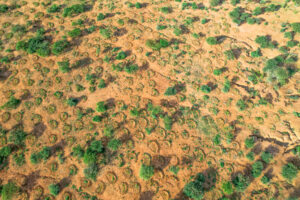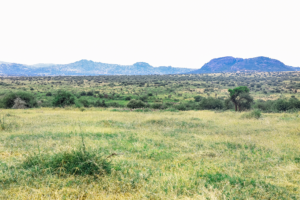Transforming Northern Kenya rangeland: A Community-Driven Ecological Restoration Initiative
Nelson
on
January 21, 2025


IMPACT Kenya, an Indigenous Peoples’ organization, plays a pivotal role by partnering with community land management committees, cultural leaders, women, and youth across Laikipia, Samburu, Isiolo, and Marsabit counties. Through awareness campaigns and hands-on training, it has engaged 1,550 individuals across ten community lands covering more than 150,000 acres, resulting in the successful restoration of 800 acres through reseeding efforts and the establishment of demonstration sites for drought-resistant fodder. Importantly, water management initiatives rehabilitated six boreholes and constructed a new one to ensure reliable water access, encouraging grazing in the rangeland. This initiative showcases the environmental and economic benefits of sustainable practices, paving the way for a resilient future.

In Samburu County, the Nkaroni community exemplifies this grassroots movement. Together, they have tackled invasive species and reseeded degraded grasslands. Their efforts have not only revived local ecosystems, bringing back wildlife like antelopes and diverse bird species, but also fostered a profound sense of unity and purpose.

As 2024 came to a close, the Nkaroni community celebrates their achievements, reflecting on the ecological recovery and renewed hope they have cultivated. Their collaborative spirit and dedication serve as a beacon of resilience, demonstrating that meaningful change begins at home.
- Category: Blog
- Tag: Climate resilience, Land restoration



